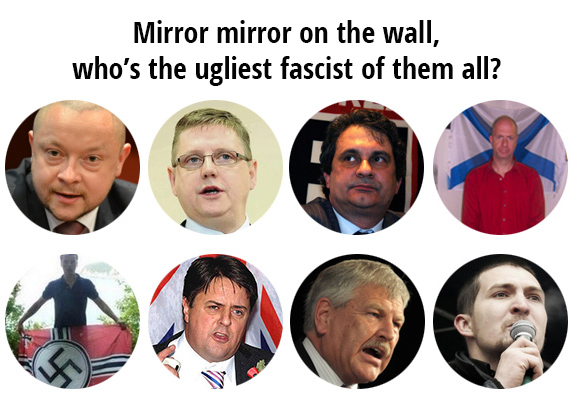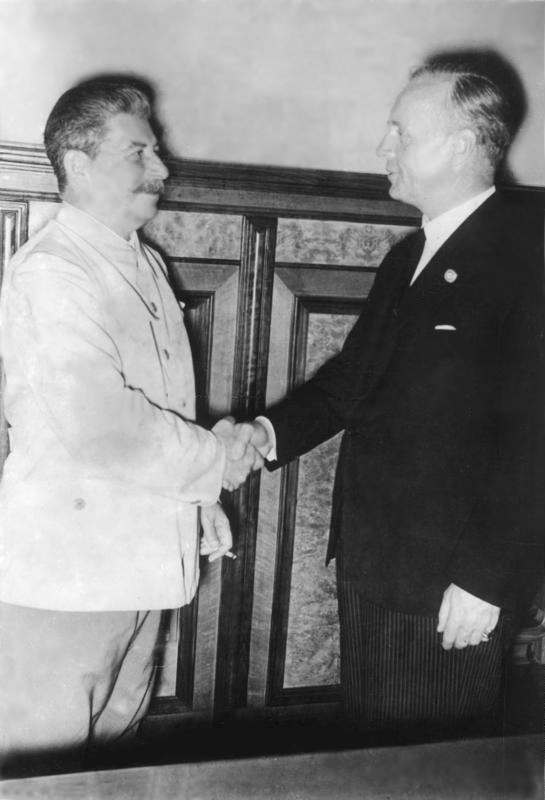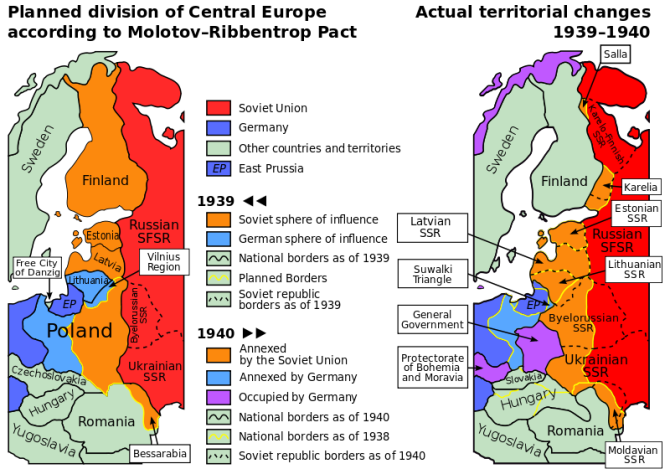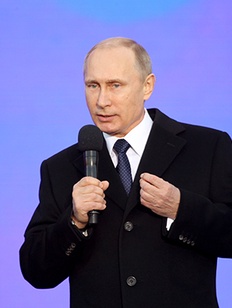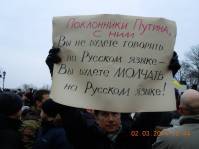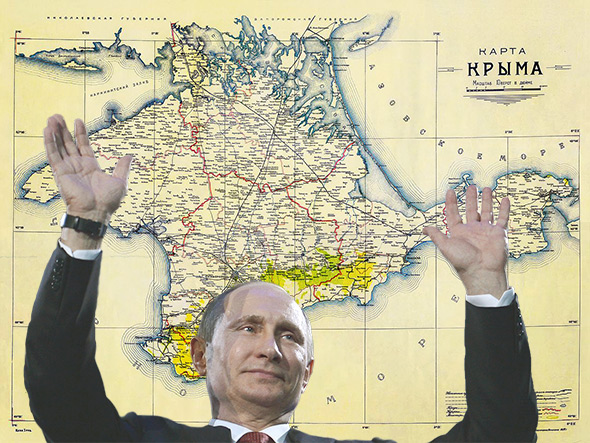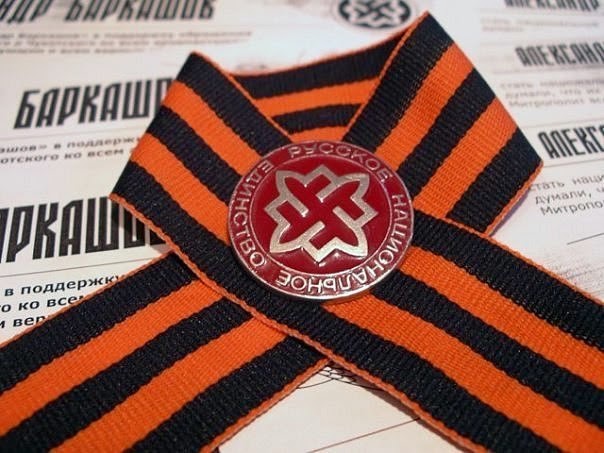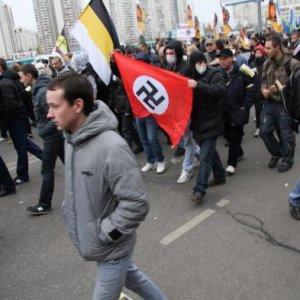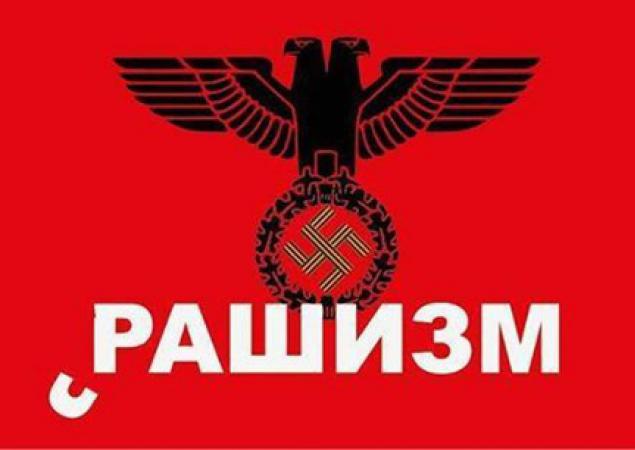Some Russians explain the holding of a conference in St. Petersburg of fascists from around the world by suggesting that those are the only supporters Vladimir Putin can find in much the same way they excuse Stalin for becoming an ally with Hitler via the Molotov-Ribbentrop Pact.
That is part of the truth, Vitaly Portnikov says; but it is not all of it. Instead, both with Stalin in 1939 and with Putin today, Moscow and foreign fascists feel like blood brothers, a reflection of the fact that “the USSR was a Reich and the Reich was the USSR” in Stalin’s times, a commonality Putin has restored.
“Stalin had many friends abroad,” the Kyiv commentator points out, including the entire Communist International, left-wing intellectuals of Europe and the United States, and so on, who were ready to sing his praises both because they believed in “the bright future” of communism and because they were afraid of Hitler.
The Soviet dictator thus had a choice, and he “chose Hitler and ‘a friendship sealed in blood’ not because he was afraid of an attack by the Reich and wanted to win time for preparations for war as supporters of the leader even now say but because he saw in Hitler a fellow spirit.”
When Hitler’s foreign minister von Ribbentrop visited the Kremlin, he said that he “felt himself there as among old party comrades.” And Stalin had the same reaction: “he saw that national socialism is the natural and logical continuation of Soviet socialism and that there was nothing that could scare him away from the insane ideology of the Reich.”
The neo-Nazis come to Russia not because of a misconception but because here they are at home.
As soon as Stalin “together with the civilized world” had defeated Hitler, the commentator continues, the Kremlin leader began to erect “on the ruins of his own country and the space it had conquered a new Reich.”
“Putin and his entourage are simply continuing this construction albeit in a smaller scale,” he writes. The Lubyanka contingent “does not know how to build anything except a Reich because the NKVD and the Gestapo as a rule adopted on occupied territories one and the same buildings and thoroughly copied each other’s methods.”
“Of course,” Portnikov concedes, “Putin and his entourage think more about money and less about ideology just as Stalin thought less about ideology and more about power. It is possible that for Hitler ideology was of the essence while for Stalin or Putin, it is only a cover.”
But that is of secondary importance given how much blood both spilled and how “neither Stalin’s Soviet Union nor Putin’s Russia can offer its residents any other ideology except hatred to the rest of the world.” Consequently, “the neo-Nazis come to Russia not because of a misconception but because here they are at home.”
Russia hosting Europe’s neo-Nazis, nationalists and anti-Semites, Putin supporters all, Cast your vote for the most lunatic fascist at the International Russian Conservative Forum, and Russian neo-Nazis fighting for separatist “republics” in Donbas – English video
Indeed, since the time of Hitler’s suicide and Mussolini’s execution, “Russia is now the only country in which worshipers of fascism in all its forms can feel comfortable,” something Putin has made possible and by which he has “insulted” not only the memory of those who fought Hitler 70 years ago but also the lives of Russians today.

